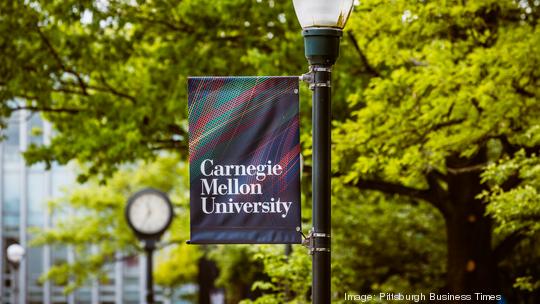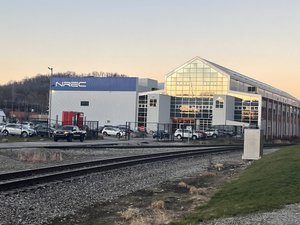
Efforts to cement Pittsburgh's prominence in the development of quantum computing are progressing as Carnegie Mellon University has announced plans to launch a new center focused on this next generation of human technological advancement.
To be established as a new National Science Foundation Industry-University Cooperative Research Center (IUCRC), CMU will look to have the Center for Quantum Computing and Information Technologies (QCiT) serve as the host for an entire local ecosystem of quantum computing and research efforts, which are expected to increase dramatically in the coming years.
Specific details on where this center will form and how much space it'll occupy haven't been disclosed yet. But Elias Towe, a professor of electrical and computer engineering and materials science and engineering at CMU, has overseen much of its development efforts after obtaining an NSF planning grant for initial work on the center back in 2022.
In modern computing, computers use bits of information to solve problems, amid a myriad other applications that computers can do. The bits that make up modern computers consist of ones and zeros, a signal that translates to being either on or off.
With quantum computing, qubits are used for this on or off state too, though qubits also possess the ability to exist in a state between the two, which allows for these machines to solve advanced mathematical problems in a more realistic timeframe, rather then the centuries it would take a traditional modern computer.
The center's initial focus will be on developing a quantum communications network and building a quantum computing processor. Efforts for the former will look to build secure communications and interconnecting networks to support and distribute quantum computing processors, which will lead to further research on using algorithms for materials simulations, drug discovery, industrial process optimization and quantum machine learning, among others.
The QCiT will look to work with industry and government stakeholders to identify quantum-based solutions to global challenges. Doing so will also require a trained workforce that's familiar with this work, and the QCiT will help educate students at CMU to learn more about careers in this field.
"We want people from different backgrounds to understand the layers of the quantum ecosystem," Towe said in a statement. "We want people who build the software to understand what the hardware people do and vice-versa. They may not deeply understand everything, but they can appreciate what others have to do."
With the addition of the QCiT, Pittsburgh adds to its arsenal of quantum-based research and development following the establishment of the Pittsburgh Quantum Institute, which launched a decade ago in partnership with the University of Pittsburgh, Carnegie Mellon University and Duquesne University.









